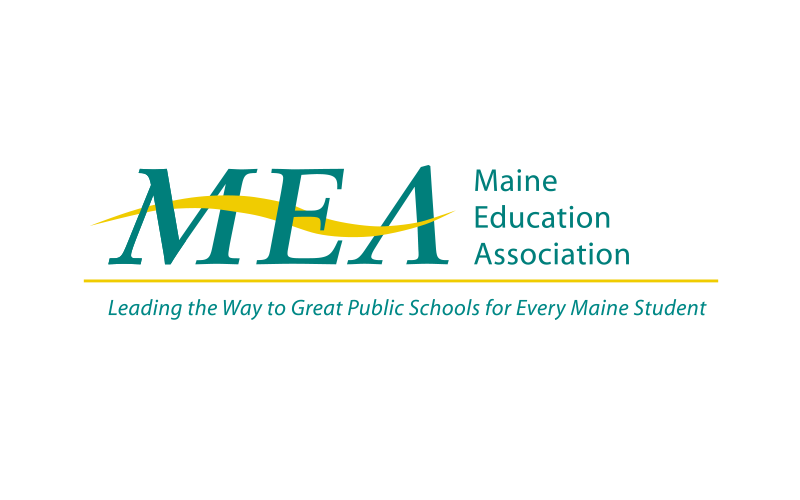A Five-part Webinar Series sponsored by Maine Education Association, Connecticut Education Association, NEA-Rhode Island, NEA-New Hampshire and Vermont-NEA
See Zoom registration information below.
Please join us for a professional learning opportunity as our five NEA state affiliates continue to collaborate in the work to create safe, compassionate schools across New England. Dave Melnick, Director of Outpatient Services at Northeastern Family Institute Vermont, will lead a series of webinars designed to help prepare educators for the return to school this fall. For the past 30 years, Dave has worked with children, adolescents, and families in a variety of settings, including outpatient, residential treatment, and schools. In addition to providing direct clinical work, Dave consults with and trains professionals and caregivers throughout Vermont, as well as in New York and British Columbia. His areas of expertise include developmental trauma, family therapy, adolescence, and attachment. He facilitated a highly successful webinar series for Vermont educators in response to the pandemic this spring.
Webinar #1 and #2: The Educator Mindset: Stress, Stress Mitigation and Resilience in Times of Community Crisis – July 28 & 30 (9:00 – 11:00 a.m.) Watch the recording for the first webinar here: https://zoom.us/rec/share/2OtnFKr5qT9Jc7fcwRD8WKp9AKH4eaa81SEWqPQNyxrLB34zPv0ACc6IWGCv1rP3 Password: niJs8AH@
In Webinar #1 and #2 we will examine how our mindsets, both implicit and explicit, are driving forces of our actions, interpretations and perceptions, particularly when working in high stress situations with students. Mindsets are beliefs and assumptions that help us organize and categorize our lived experience and they are taught, nurtured, implied and assimilated into our thinking, often very early in our lives. Many of our most impactful mindsets originate in our physiological system, in pre-conscious forms, and it is critical to our work that we deconstruct and examine these beliefs. This is particularly true regarding mindsets related to race, gender, sexual orientation, other “isms” and disciplining children, and warrant especially critical self-inquiry. Webinar content will also focus on stress, traumatic stress and the unique challenges of living and working through the COVID-19 pandemic. We will examine the three premises for trauma-informed schools and study the stress response system. Finally a 4-phase model of restoring well-being during the pandemic and other times of adversity will be offered.
Webinar #3 and #4: The Core Capacities to Transform Trauma in Schools: The Healing Community
August 4 (1:00 – 3:00 p.m.) & August 6 (9:00 – 11:00 a.m.)
In Webinars #3 and #4 we take a comprehensive look into strategies that help to build healing and resilience practices in schools. These include Reflective Practices, Restorative Practices, Reframing, Stress Mitigation and other SEL skills. Our model of promoting resilience in schools recognizes that sustainable change requires top down, bottom up and lateral implementation of these practices. They require close partnership between and amongst administrators, workforce, students and families, and rest on the notion that resilience is largely relational. When we prioritize and resource high quality relationships on all of these levels, the work of schools thrives. The trauma-informed schools model also rests on the belief that SEL skills are not “soft skills” but essential human skills necessary for excellence, growth and positive change.
Webinar #5: Re-establishing the School as Community and the Six Drivers of Change – August 19 (9:00 – 11:00 a.m.)
For the final webinar in this series we will discuss ways to integrate new knowledge acquired from remote learning into the 2020-21 academic year. The necessary closure of school due to the pandemic has left a wake of sadness, missed opportunity and uncertainly for many, as well as lights of hope and a chance to make new meaning of our work with youth. The transition back to school is an unparalleled opportunity to build a more responsive, equitable, resilient and relational community of learners and teachers. To implementation change, particularly those related to trauma-informed schools, fidelity to an implementation plan and the 6 Drivers of Change will be considered.
Topic: Webinar 1 – The Educator Mindset: Stress, Stress Mitigation and Resilience in Times of Community Crisis
When: Jul 28, 2020 09:00 AM Eastern Time (US and Canada)
Register in advance for this webinar:https://zoom.us/webinar/register/WN_qRdlkTI0SY-u03kzXiI-XQ
Topic: Webinar 2 – The Educator Mindset: Stress, Stress Mitigation and Resilience in Times of Community Crisis
When: Jul 30, 2020 09:00 AM Eastern Time (US and Canada)
Register in advance for this webinar:https://zoom.us/webinar/register/WN_SWWiqZ9KRMi5GLus7vUCkQ
Topic: Webinar 3 – The Core Capacities to Transform Trauma in Schools: The Healing Community
When: Aug 4, 2020 01:00 PM Eastern Time (US and Canada)
Register in advance for this webinar:https://zoom.us/webinar/register/WN_56xlxJu5TIOsKw2bR_hIsA
Topic: Webinar 4 – The Core Capacities to Transform Trauma in Schools: The Healing Community
When: Aug 6, 2020 09:00 AM Eastern Time (US and Canada)
Register in advance for this webinar:https://zoom.us/webinar/register/WN_6SOdlMMjQUuJHxZ8mU-WjQ
Topic: Webinar 5 – Re-establishing the School as Community and the Six Drivers of Change
When: Aug 19, 2020 09:00 AM Eastern Time (US and Canada)
Register in advance for this webinar:https://zoom.us/webinar/register/WN_JNnyyhZsQ7OXwU4gTuCwyw




